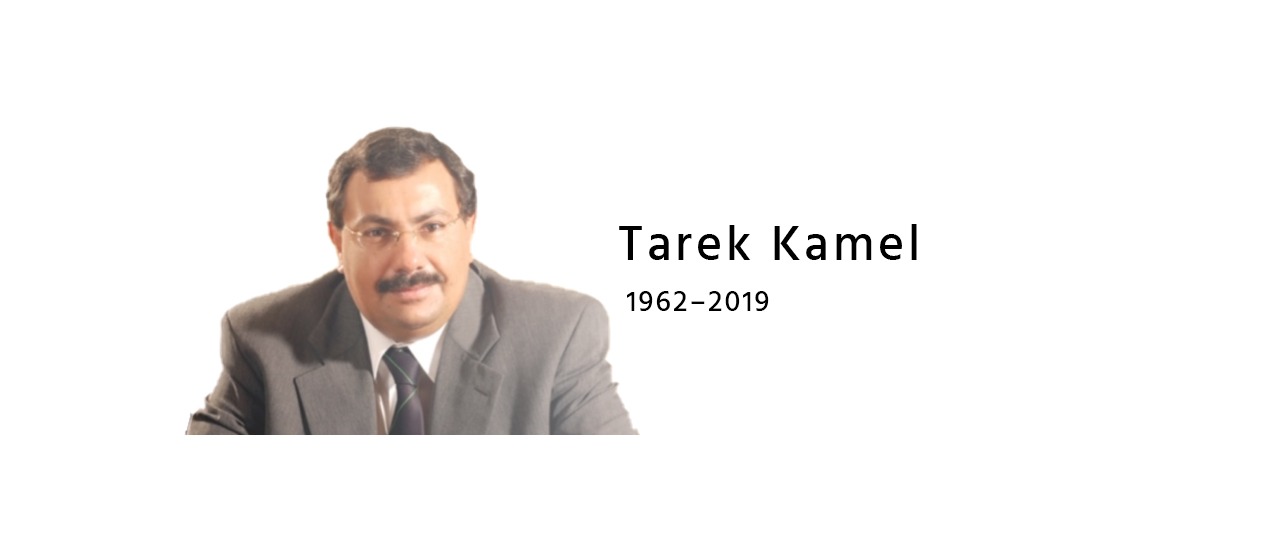It was indeed very sad news yesterday that Tarek Kamel passed away. Despite his suffering and illness, no one expected death could be that close. Just last week I was chatting with friends in common about his persistence in planning to attend the upcoming ICANN meeting in Montreal, with permission from his doctors. That was Tarek Kamel: always forward looking and a real fighter for what he believed in.
Tarek’s death moved not only his family and friends, but a wider group, especially in the Internet community. Let me share why.
Who is He in a Nutshell?
Tarek Kamel had a Ph.D. in electrical engineering and information technology from the Technical University of Munich. From 1992 to 1999, he was the manager of Egypt’s Communications and Networking Department at the Cabinet Information and Decision Support Centre (IDSC/RITSEC). During this period, he established Egypt’s first connection to the Internet, steered the introduction of commercial Internet services in Egypt, and co-founded the Internet Society of Egypt (the Egyptian Chapter).
Kamel joined the Ministry of Communications and Information Technology at its formation in October 1999, where he was appointed senior advisor to the minister. Then he served as the minister of communications and information technology from July 2004 to February 2011.
As well as co-founding the Internet Society of Egypt, Kamel served as a member of the Internet Society Board of Trustees and a vice president for Internet Society Chapters from 1999 to 2002.
He is a founding member and a previous board member of AfriNIC. He acted as chairman of the Executive Bureau of Arab Telecommunications and Information Council of Ministers from 2004 to 2008 and the chairman of the Ministerial Conference on Communication and Information Technologies of the African Union from 2006 to 2008. In recognition of his leadership in the ICT sector, the South African Ministry of Communications named him, in 2005, “Top Minister in Africa with an ICT Portfolio.”
A Glimpse on his Accomplishments & Views
I was privileged to work closely with Tarek Kamel when I joined the ministry of communications and information technology (MCIT) in Egypt in 2002, and I mean “closely” because Egypt was on the edge of hosting ITU telecom Africa in 2004. For Tarek, hosting an event was not about logistics and administrative issues, though important. Hosting a regional or international event for Kamel is a journey and strategic intellectual adventure. Hence, he requested that I actually complete my tasks from his own personal office at the ministry. I was young but I knew that this was big. Being as meticulous as he was, gaining his trust was overwhelming. He wanted to be as close as possible to the development of the process. Sitting with my laptop at his long meeting table was just close enough that he could chat with me in between his busy schedule, calls, and day-to-day tasks. We were partners: we traveled together to Geneva several times to negotiate the host country agreement with the ITU and solve many issues. For him the event had to be successful, whatever it took. We rode in his car weekly to check the construction at the venue, the Cairo International Conference Center, to make sure plans were moving at a good pace.
Being that close to Tarek made us friends. I remember his stories. At an early age, he traveled to California to attend one of the iNET meetings (I think in 1993). He was around his late 20s, early 30s, at the time and he wanted to learn about IP connectivity, Internet protocol. I remember how fascinated he was meeting figures such as Vint Cerf, George Sadowsky, Steve Crocker, and many others. It was them and this meeting that made him understand how the Internet works and how he can transfer this knowledge to Egypt. From there he got attached to the growing community of the Internet Society, an organization that he had a lot of respect for.
He was a visionary person and he believed that the Internet should remain free, open, secured, and for everyone. He was a great advocate for the role of all stakeholder groups and he believed the Internet should continue to be an area of cooperation, inclusion, and integration rather than a competition.
His noble personal character would not allow him to keep such beliefs to himself alone. He always reached out to his regions, was fond of Africa and African colleagues, and had many African friends from the technical community.
Tarek was always proud that he was one of the early contributors to the early efforts of the African group of Internet experts and their collaborative work, which advanced the development of the Internet in Africa and has resulted in many successful initiatives and organizations such as AfriNIC, AfNOG, and others.
He was as happy as a child could be when Egypt decided to take the initiative to coordinate African needs, stances, and contributions before the first inaugural meeting of the IGF in Athens in 2006. “Africa on the Road to Athens” was the kick start to a long process of African coordination.
In 2009, Egypt hosted the iNET African workshop to prepare the African group for the IGF 2009 in Sharm EL Sheikh, Egypt. He used to say that having this preparatory workshop done with the support of the Internet Society was an asset to the coordination process, thanks to the well-known and long standing experience and history of the Internet Society in promoting and developing the Internet all over the world.
On the Arab level, with his long term position as the president of the Bureau of ICT ministers of the Arab League, he exerted all efforts possible trying to explain how the Internet works and how it should not be regulated. The governance of the Internet needed to be looked at from different perspectives to keep it as innovative as possible and allowing creativity and entrepreneurial aspects.
I worked with each minister of communications and information technology after Tarek left, about 8 of them. With all respect and appreciation for their efforts, Tarek was different.
While he was minister, he called regular meetings of no more than five young colleagues, myself included, whom he trusted and had taught all about Internet governance. We were responsible for implementing his strategy and vision on different international platform and UN fora. During those meetings, we exchanged thoughts about the international and regional scenes. He was very busy at the time Internet Governance was a real hot topic at the WSIS fronts and later the Internet Governance Forum. He wanted to keep pace with us and through us and to make sure that his team remained sound, efficient, and on the right track no matter the challenges. My former colleagues and I miss these meetings where, with our leader, we set strategy. He believed so much in the rising need for regional clusters and national IGFs during the era of 2008-2010. We were heavily engaged with him to establish the Egyptian national IG forum, but the political situation and the change in government in 2011 did not allow him to continue.
However, even after he left the government, and despite the fact that his departure was accompanied by the discovery of his illness, he remained behind many of our accomplishments for many years. Through his encouragement, there was a diplomatically managed link with the minister to ensure a smooth transition, a better understanding of the work at hand, and a trusted, well-educated, and knowledgeable team.
I cannot say enough about Tarek Kamel and why the Internet community has lost one of its pioneers and visionaries. May his soul rest in peace, and may his family and friends be granted serenity and patience.

